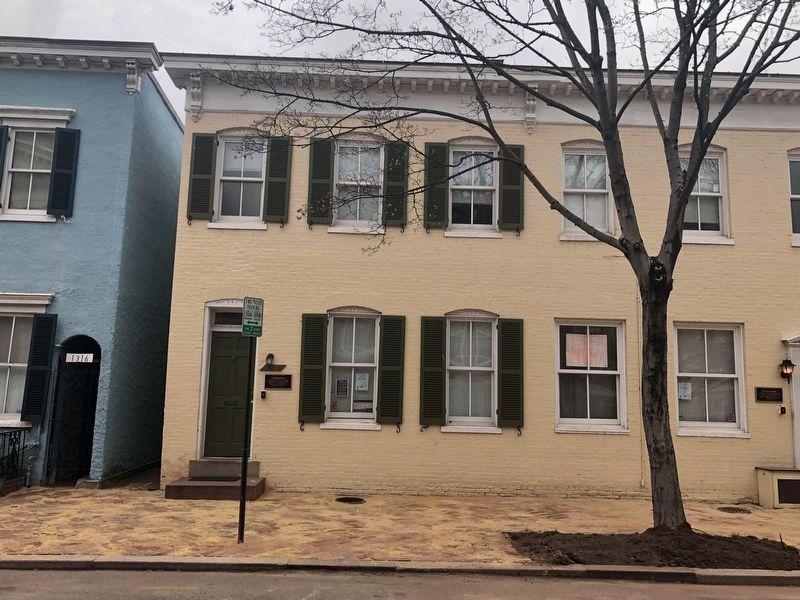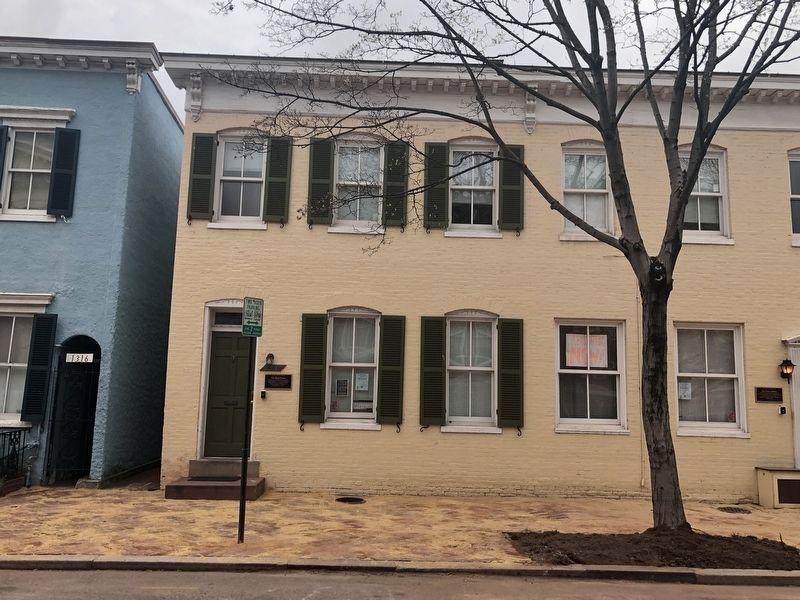Students gathered at Black House, a community space devoted to meeting the needs of students of color, to discuss ways to better support community activism and build stronger coalitions of solidarity among the Georgetown University student body.
Georgetown’s Leaders in Education About Diversity (LEAD), a program under the Center for Multicultural Equity and Access (CMEA) that aims to conduct peer education and leadership development through the facilitation of open dialogue, hosted the Feb. 21 event. LEAD facilitators work with Georgetown student groups and organizations to explore issues of diversity, equity and inclusion (DEI).
Amanda Yen (CAS ’23) and Kendall Bryant (MSB ’23) co-led the facilitation, structuring the event in a question-and-answer format with audience participation after posing prompts for reflection. Bryant spoke on the ways their identity impacts their political consciousnesses.
“As a Black queer person, I think it’s really important to me to understand how racism, capitalism, cis-heteropatriarchy, and imperialism come together to produce oppression in the world,” Bryant said at the event.
Bryant said they make deliberate efforts to explore concepts and ideas that are unfamiliar to them so that they can develop a more empathetic understanding of others’ perspectives and backgrounds.

“I like to expose myself to different ways of thinking, and different ways of knowing, and also different ways of being,” Bryant said. “I try to read. I try to also listen to people, because that’s not the only way to get information. I try to educate myself on using different media. So film as well. I also like to listen to music.”
On the topic of personal activism, Muna Aden (MSB ’24) said she tries to reduce her impact on the environment because climate justice is a political priority for her.
“I feel like it’s, in theory, very important to me, but in practice, I struggle to find ways to minimize my carbon footprint in a lot of different ways,” Aden said at the event. “One way that I’ve done it and continue to do it is minimalism; I try not to purchase too much. And especially when it comes to clothing and other material things.”
Andrea Ho (SFS ’24) said she wants to see more collaboration between different Asian ethnic groups and their student organizations on campus.
“Being Southeast Asian, I feel like the Asian community at Georgetown is very fractured, like within itself and also between the sub-communities,” Ho said at the event. “I often see very little solidarity. It seems like they show up for their own community events, but they don’t show up for others.”
Yves-Melsein Metellus (MSB ’26) echoed Ho’s sentiments about the importance of cultural collaboration and said he wants the Black community at Georgetown to come together and better support each other.
“I want to get more educated about the systems of oppression put in place to keep people at bay,” Metellus said at the event. “I’ve also noticed here, how washed down the Black community is, sealed together so it’s divided a little bit. Not everybody shows up to the events, like barely anyone shows up.”
Aden said recent DEI initiatives that The Corp and other student organizations have launched are good first steps, but their efforts are still not enough to counteract systemic sources of bias.
“I think it’s really interesting how lately a lot of student orgs have been making a more targeted effort — I’m going to say The Corp specifically — and they’ve been making a more targeted effort to recruit diversity, and they have all their affinity groups within the organization. However, I feel like that’s just like a bandage for a larger solution,” Aden said.
Aden said she wants to see student organizations prioritize addressing tangible problems, not just create affinity groups.
“Yes, you can make a group, it can be really cute, awesome, but it doesn’t actually solve the organizational issues, which is that it isn’t a safe space, and it isn’t a comfortable space for Black and brown and queer people,” Aden said
Aden said the key to affecting broader change across and beyond campus is focusing on “thick solidarity,” a process of deep community building that relies on cultivating mutual empathy.
“When thick solidarity centers interpersonal empathy, there’s no end to the progress,” Aden said. “Because it’s not like, ‘Okay, there’s this problem, we fixed it, boom, we’re done.’ It’s like, ‘No, we’re going to continuously work to make people feel valued, and feel seen and heard.’”





















